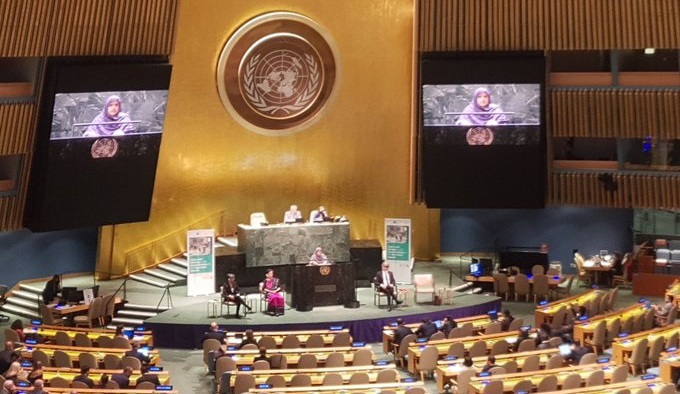Assessing the situation
1. Despite having spent billions and billions in energy projects all over the world, governments, international finance institutions and energy agencies have come to the conclusion that these initiatives had not been conducive to sustainable development. The first Report of the World Commission on Environment and Development, “Our Common Future” (1987), highlighted that our world had to deal not with one, but with four related crises, all related to energy and all seem to have deepened ever since.
2. First, despite rapid science and technology advances, we have not yet succeeded in eradicating poverty. An increase in poverty and inequalities will be aggravated by rapid population growth: 90% of which will take place in non-industrialised countries, and predominantly in already overpopulated cities.
3. Second, unchecked global economic growth no longer provides appropriate employment. It can cause pollutes pollution and depletes resources, creating greater environmental degradation, especially in countries where environmental legal constraints are weak or nonexistent. Development and environmental policies which lead to disproportionate burdens on the poor and discriminate against minorities violate human rights obligations. In the past ten years, the gap between rich and poor has increased drastically both within and between countries. Furthermore, the middle class, traditionally a factor in maintaining economic and social stability, is shrinking dangerously, increasingly precipitating formerly autonomous families into difficulty, and resulting in social unrest.
4. Third, we have an ecological crisis due to soil erosion, shrinking water supplies, water degradation, air pollution and climatic perturbations, as well as deforestation and disappearing biodiversity. International environmental conventions and agreements to protect natural resources have been signed and ratified, but there is open violation of them as enforcement and monitoring are weak.
5. Finally, it is clear that our present style of development and energy systems has been made possible by borrowing from the future, thus creating a possibly irreversible handicap for future generations.
6. These four crises are inter-linked and compound each other. Hence solutions need to be cross-cutting and applied simultaneously. Ever since the Earth Summit in Rio in 1992, a flurry of international conferences and research reports have revived efforts that had been triggered by the first energy crises of 1973 and 1979. The Summit on Sustainable Development of Johannesburg (2002) and the Millennium Development Goals provide us with frameworks to tackle the energy challenge. Proposals and solutions have emerged from the numerous workshops and efforts by governments, NGOs, business and researchers. We welcome, in particular, the recommendations made by the G8 Renewable Energy Task Force in July 2001, the Declaration made at the Conference Energy for Development in The Netherlands (December 2004), the papers produced by NGOs, intergovernmental organisations like UNEP, UNDP, and others, and lately the Calabar Declaration on Renewable Energy for Sustainable Development (Nigeria 2005) and the Beijing Declaration on Renewable Energy for Sustainable Development (November 2005). They show an encouraging level of convergence.
Read the draft version of the NGO background paper for CSD-14. This is not a position paper and does not tie down the NGOs in any policy position.


